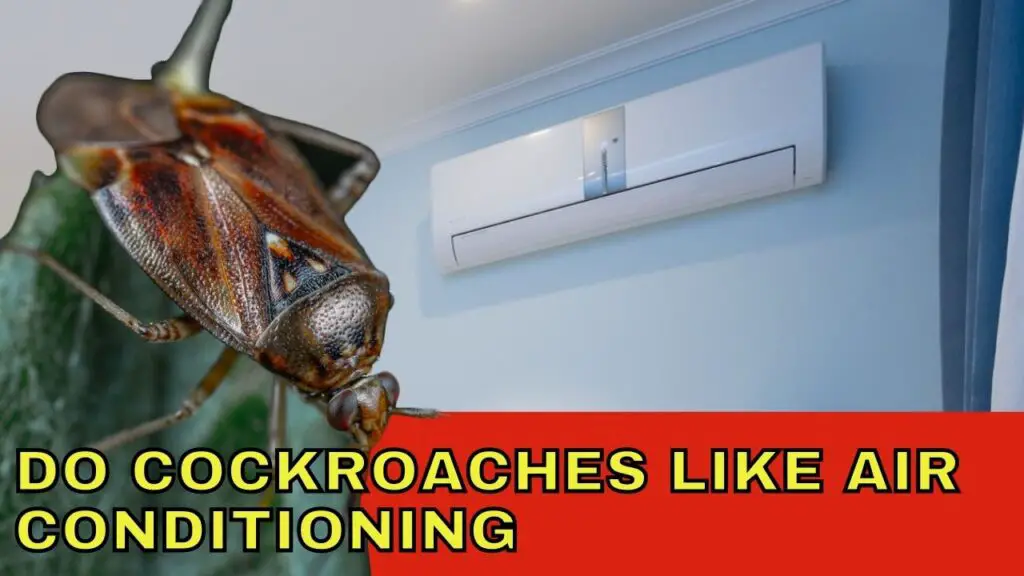Cockroaches have been around since prehistoric times. They’ve survived it all, outliving the dinosaurs and getting through everything we know that’s been thrown their way. And even after us pesky humans took over their world, these little critters don’t seem to be giving up the fight anytime soon.
We all know there’s nothing as bad as finding a cockroach scurrying across the floor inside your own home. Is it going to bite me? How did it get in? Are there more of them? All of these are questions that come to mind as we jump onto the nearest chair, hoping it will just leave us alone.
But are there ways for us to keep cockroaches at bay? Yes – it happens that our love of keeping cool and comfortable might just be the answer.
Does air conditioning keep roaches away?
Air conditioning allows us to control the temperature and humidity of our homes at the click of a button. It may be close to 100 degrees, outside but we can step indoors and bask in the glory of a cool, dry room thanks to these amazing machines. But does air conditioning keep roaches away? Well, it appears so.
The sweet spot for our AC units is 78 degrees Fahrenheit. This is perfect for balancing energy savings and staying cool and comfortable at home.
However, cockroaches like living in temperatures between 78 and 86 degrees Fahrenheit, especially if it’s humid as well. So, if we simply drop the temperature a couple of degrees to below 76 for a few hours throughout the entire house, we can repel cockroaches from our homes.
It’s also important to remove as much humidity as possible from the air at the same time. This will help keep roaches away.
Do air conditioners attract cockroaches?
Air conditioners may provide us with cool, dry air on the inside of the house, but we tend to forget that they’re connected to the outside world through vents, and a water source is often necessary for them to function correctly.
We know now that cockroaches are attracted to warm and humid conditions, and the critters also love dark spaces. So, the air conditioner vents that run through the walls of our houses are prime living quarters for roaches as they’re dark, warm, and protected from the elements.
Running the air conditioner heats up the dark vents, and, because many air conditioners use water in order to cool down the air passing over it, cockroaches are drawn in. More modern AC units don’t use water, but condensation can still build up, causing a similar problem.
Does keeping your house cold keep roaches away?
Humans are warm-blooded, so we’re generally able to regulate our temperature if we get too hot or too cold by sweating or shivering. On the other hand, cockroaches are cold-blooded insects and don’t have that same luxury. This is why they need warm, humid temperatures to survive and reproduce.
If we’re able to keep our houses cold, it will create an environment that cockroaches simply can’t handle due to their cold-blooded nature, as they have no way to regulate their own body temperature.
The difficult part here is to make sure that we keep the entire house cold. This includes small pockets of warm air that may build up over electrical appliances, water heaters, and air conditioners.
What temperature do roaches hate?
Cockroaches hate temperatures that are either too hot or too cold. Strangely enough, their ideal temperature is like ours, between 78 and 86 degrees Fahrenheit. Anything outside this range becomes difficult for cockroaches to handle.
If temperatures drop to below 30 degrees Fahrenheit for 2 hours, it will kill any cockroaches subjected to those temperatures. However, for those of you not wanting to experience life in an igloo, simply keeping the temperatures below the 76 degrees Fahrenheit mark will deter roaches from entering.
On the other end of the scale, cockroaches will die when exposed to temperatures over 120° degrees Fahrenheit. Their exoskeletons simply can’t handle the higher temperatures, and this level of heat will kill them. However, humans wouldn’t have a good time in this sort of heat, either, so repelling cockroaches with cool air is definitely easier.
